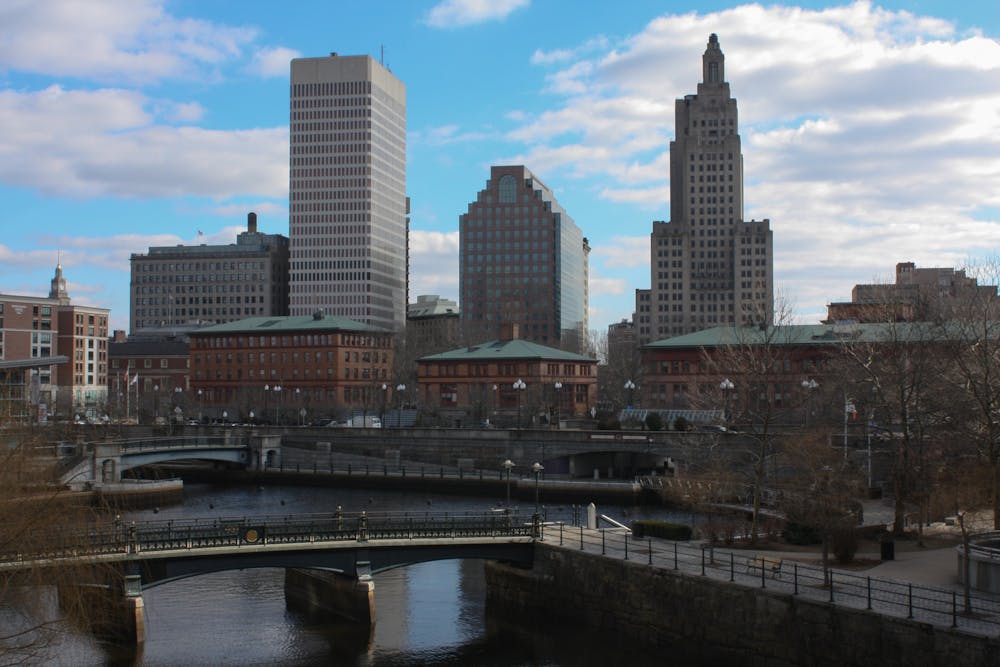Earlier this month, the Board of Contract and Supply approved a Nov. 2 request from the Smiley administration to increase funding for the Providence-based racial equity nonprofit United Way of Rhode Island from $1.75 million to $3.35 million from the city’s $10 million COVID-19 Equities Program, widely known as a reparations budget.
In November 2022, former Providence Mayor Jorge Elorza designated $10 million for the program, using a portion of $166 million in American Rescue Plan Act funds that the city received as federal COVID-19 response money. The city received a total $13.1 million in ARPA funds specifically for addressing racial equity, which includes the $10 million Elorza allocated.
According to the Nov. 2 press release from the Smiley administration, “many of the funding totals were not enough to deliver what was outlined in the ordinance,” referring to the implementation objectives for the COVID-19 Equities Program established by the City Council in 2022.
“In an effort to meet the intent of the proposal and increase the impact of the limited dollars, United Way was identified as a partner that has existing programs, established infrastructure and a focus on equity,” the press release reads.
In an email to The Herald, the Smiley administration’s spokesperson Patricia Socarras wrote that “before funding can be issued, a contract needs to be signed by both parties.” Socarras noted that the “City of Providence and United Way are currently in the contracting phase,” a process that “could take several weeks.”
According to Larry Warner, chief impact and equity officer at United Way of Rhode Island, the nonprofit has already formed plans for its policy research and community engagement programs that are expected to start as soon as the organization receives funds from the city. Warner said United Way planned to start their work on Dec. 1, but they have not received the funds yet. He added that United Way is hoping to begin policy research work in early 2024.
The organization will work in collaboration “with neighborhood providers,” including barbershops, which Warner explained is “intended to engage barbers in Black and brown communities as ambassadors.”
According to the city’s press release, other programs include a fund dedicated to supporting neighborhoods impacted by urban renewal, public education campaigns and the creation of two K-12 curricula, including “A Matter of Truth” curriculum that focuses on the history of people of African and Indigenous heritage in Providence.
In April 2022, the Municipal Reparations Commission appointed by Mayor Elorza and the City Council began defining major areas for improvement for racial equity in Providence. Their efforts resulted in the creation of the “A Matter of Truth Report,” which offered an 11-point investment plan for the city to close the present-day racial wealth and equity gap.
Suggestions from the report included working on economic and health equity, dedicating money to the development of “African Heritage and Indigenous Media” and increasing “representation of African Heritage and Indigenous People in Governing Bodies.”
Since the fund’s inception, only $275,000 out of $10 million has been spent, which constitutes around 2.75% of the designated funds, according to the city’s press release.
James Vincent, a housing committee chairperson for the New England NAACP conference and senior advisor to the Black Lives Matter Rhode Island Political Action Committee, was one of the Municipal Reparations Commission participants. “I’m very disappointed that the money is being allocated so slowly,” Vincent said, referring to the quantity spent so far as “a drop in the bucket.”
“We have people that can’t wait for that money to be allocated now,” Vincent said, noting that the program has already gone through multiple community engagement and bureaucratic processes. “What we need to do is just operationalize the programs (and) put money out there now.”
According to Harrison Tuttle, president of the BLM RI PAC, $10 million is “nowhere close to where most Rhode Islanders that have been impacted by the slave trade deserve.”
In an email response, Socarras wrote that the Smiley administration “understands the positive impact these funds will have on our community and looks forward to working with United Way and other community partners to get these meaningful programs underway.”
Both Vincent and Tuttle said they believe that United Way will be able to use the funds effectively, and noted that they see the increased allocation of funds to United Way as a step in the right direction. The funds are “a good starting point for us to use as a foundation to move forward and have those conversations,” Tuttle said.





